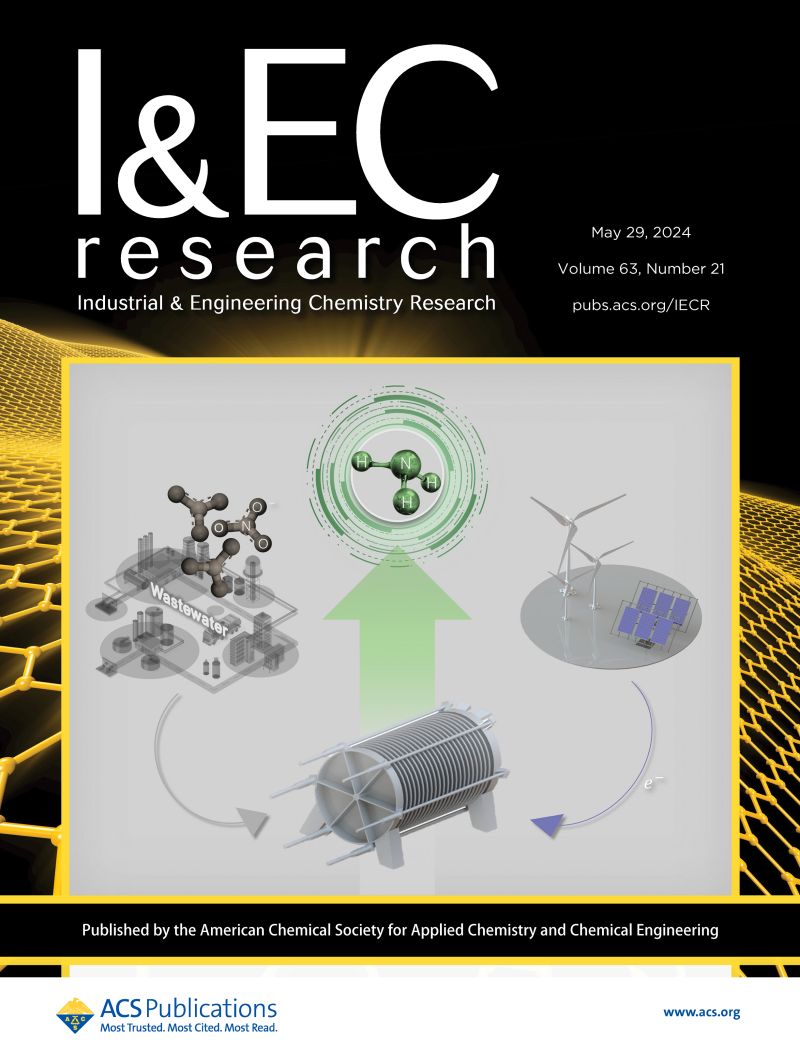Alkali-Free Oxidation of Glycolaldehyde and Ethylene Glycol Toward Glycolic Acid Over a Pt/C Catalyst
IF 3.8
3区 工程技术
Q2 ENGINEERING, CHEMICAL
引用次数: 0
Abstract
Glycolic acid (GA), a versatile compound widely used in pharmaceuticals, cosmetics, and biodegradable polymers, requires efficient and sustainable synthesis methods to meet industrial demands. This study investigates the selective oxidation of glycolaldehyde (GD) and ethylene glycol (EG) to GA over a carbon-supported platinum (Pt/C) catalyst under alkali-free conditions. Complete GD conversion with exceptional GA selectivity (99.8%) was achieved under mild conditions (30 °C, 2.5 MPa air), while EG oxidation exhibited moderate conversion (∼60%) with >90% GA selectivity. Kinetic analysis revealed distinct oxygen pressure dependencies: GD oxidation exhibited strong oxygen sensitivity, as oxygen adsorption and activation were rate-determining, whereas EG oxidation was predominantly governed by substrate concentration due to the oxygen saturation on the Pt/C surface. Mechanistic studies identified GD as a key intermediate in EG oxidation, with overoxidation pathways limiting GA selectivity at higher temperatures and concentrations. Catalyst characterization demonstrated high Pt dispersion, stable surface chemistry, and structural durability, contributing to its superior performance. This work provides a green, efficient pathway for GA production, offering valuable insights into catalyst design and process optimization for sustainable chemical manufacturing.

Pt/C催化剂上乙醇醛和乙二醇无碱氧化制乙醇酸的研究
乙醇酸(GA)是一种广泛应用于制药、化妆品和可生物降解聚合物的多功能化合物,需要高效、可持续的合成方法来满足工业需求。研究了在无碱条件下,碳负载铂(Pt/C)催化剂上乙醇醛(GD)和乙二醇(EG)选择性氧化制GA的反应。在温和的条件下(30°C, 2.5 MPa空气),GD完全转化具有优异的GA选择性(99.8%),而EG氧化表现为中等转化(~ 60%),GA选择性为>;90%。动力学分析显示出明显的氧压依赖性:GD氧化表现出很强的氧敏感性,因为氧吸附和活化是速率决定的,而EG氧化主要受Pt/C表面氧饱和度的底物浓度控制。机制研究发现GD是EG氧化的关键中间体,在较高温度和浓度下,过氧化途径限制了GA的选择性。催化剂的表征表现出较高的铂分散性、稳定的表面化学性质和结构耐久性,这是其优异性能的主要原因。本研究为GA生产提供了一条绿色、高效的途径,为可持续化工生产的催化剂设计和工艺优化提供了有价值的见解。
本文章由计算机程序翻译,如有差异,请以英文原文为准。
求助全文
约1分钟内获得全文
求助全文
来源期刊

Industrial & Engineering Chemistry Research
工程技术-工程:化工
CiteScore
7.40
自引率
7.10%
发文量
1467
审稿时长
2.8 months
期刊介绍:
ndustrial & Engineering Chemistry, with variations in title and format, has been published since 1909 by the American Chemical Society. Industrial & Engineering Chemistry Research is a weekly publication that reports industrial and academic research in the broad fields of applied chemistry and chemical engineering with special focus on fundamentals, processes, and products.
 求助内容:
求助内容: 应助结果提醒方式:
应助结果提醒方式:


